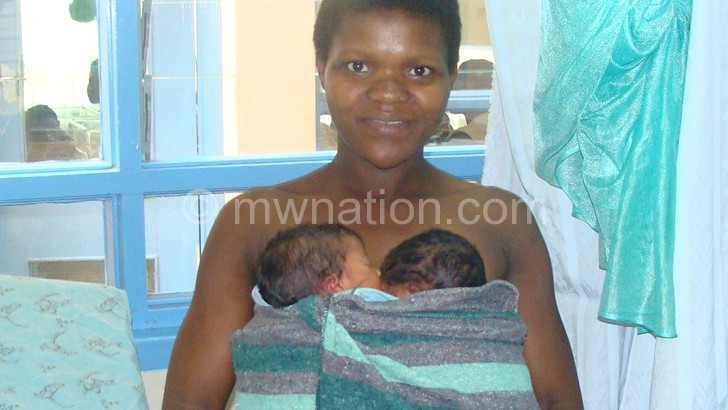The woes of pre-term births
A few weeks after getting married, Lisa (not real name) found out that she was pregnant. She was thrilled.
While she felt fine most of the time, about 20 weeks into her pregnancy, she experienced some bleeding. She was alarmed and doctors could not find a cause.
At 24 weeks, she bled again. She was rushed to hospital. Despite all the pain, it never occurred to her that it could be contractions.
She was shocked when the nurse told her she was nine centimetres dilated. She did not want to give birth to her baby yet, she thought.

Lisa knew her baby would best survive if delivered at 25 weeks utmost. All she wanted was to go back home and carry on being pregnant. Unfortunately, it was not to be. The labour intensified and she delivered a baby boy.
She only had a quick look at it before he was whisked away. Lisa remembers the lights, tubes and wires all round him and his tiny frame.
This is just one example of many pre-term birth cases occurring in the country. Parents have experienced Lisa’s predicament and while some stories end well, for others, it has been tragic.
Wikipedia defines premature birth, as the birth of a baby at less than 37 weeks gestational age.
Kaboni Gondwe is a PhD candidate at Duke University and a registered nurse and midwife lecturing at Kamuzu College of Nursing (KCN).
In her studies, she established that most mothers who give birth to pre-term babies get stressed, as mostly they worry over the child’s health.
“Preterm birth is one of the traumatic birth experiences as mothers’ birth trajectory is interrupted. Mothers still have to deal with an infant that requires extra care,” says Gondwe.
She appreciates the emotional burden on such mothers who sometimes blame themselves for the situation.
Family physician at Ndirande Health Centre, Dr Martha Makwero agrees with Gondwe on the distress.
“Depending on the weight of the baby when born, some people may stay too long in hospital and they do not like it. They worry about other children back home, for instance.
“Nevertheless, the problem is doctors do not talk to patients such as negotiating treatment plans with them. It would also help if social workers came into play,” says Makwero.
In addition to the stress, Gondwe says that pre-term births also affect mother-infant interaction because when the mother is stressed she is less responsive or attentive to the infant cues.
“Preterm infants are also less responsive to the mother and they are very fragile and may require observation which separates them from the mother and denies more opportunities for interaction.
“It is important to note that the mother-infant interaction is necessary for cognitive, physical and social development of the infant,” she says.
She also notes that such mothers need more help caring for the baby as she might fear hurting the tiny baby.
Preterm birth occurs before 37 completed weeks of pregnancy. Malawi has the highest preterm birth rate in the world, estimated at 18.1 per 100 live births, according to World Health Organisation (WHO).
“Fever, high blood pressure and bleeding may cause premature birth. To save the mother’s life, she can go into early labour,” she says.
After delivery, they are put under kangaroo mother care (KMC) which involves continuous and prolonged body contact all day.
Makwero observes that KMC prevents infant deaths from hypothermia (cold injuries) as it helps keeps them warm.
“The care itself is cheap and the strain does not rest on the mother alone. If there is anyone else who can care for the child, they can. So even the baby’s father, grandmother, aunt or anyone can kangaroo the baby and minimise the baby’s cold injuries,” says Makwero.
“Babies born at one kilogramme stay up to two months in hospital until they reach the recommended weight. In other instances, they are discharged as long as the baby is able to feed and is alright,” she says. n



